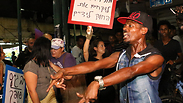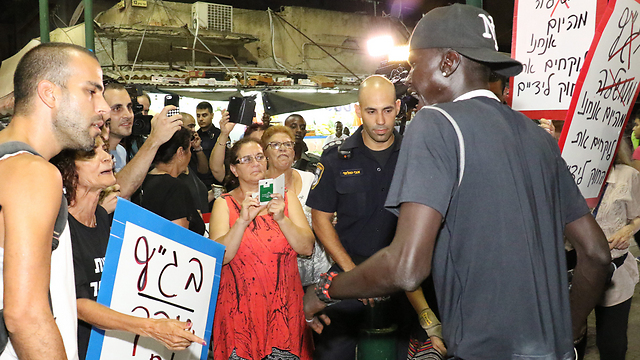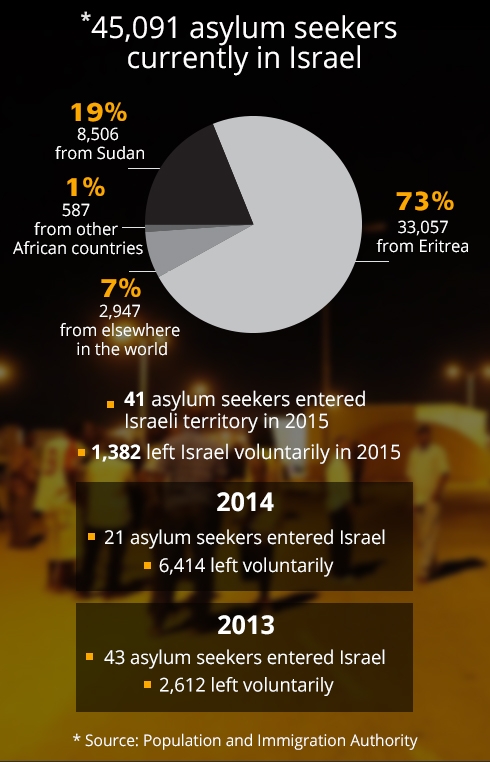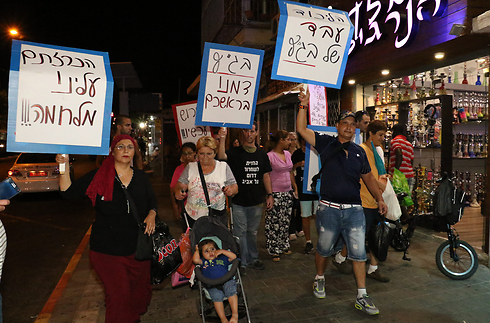
Photo: Shaul Golan
צילום: שאול גולן, "ידיעות אחרונות"
Ruling on asylum seekers stokes tensions in south Tel Aviv
Hundreds march in southern Tel Aviv after Supreme Court decision that will lead to release of some 1,200 illegal immigrants and asylum seekers from Holot facility.
Several hundred residents of southern Tel Aviv took to the streets Tuesday night in protest against a Supreme Court decision earlier in the day that will lead to the release of nearly 1,200 illegal immigrants and asylum seekers from the Holot detention facility where they are currently being held.

Most of those released will most likely return to southern Tel Aviv where a large number of African migrants have settled over the past decade. Locals have seen a drastic change in the neighborhood during that time period and claim that the flow of migrants has led to a drastic increase in crime and degradation of the area.

Protesters, police and Africans in southern Tel Aviv. (Photo: Shaul Golan) (צילום: שאול גולן, "ידיעות אחרונות")
The protesting residents marched through HaTikvah Market to Lewinsky Park - an area known for its large African population. After a short time, the protesters were ordered to disperse by police and complied, heading back to their homes. The park was left empty except for several asylum seekers.
"We decided to go out to the streets and shed light on the scandalous decision of the Supreme Court," Daniel, an activist with the "South Tel Aviv Liberation Front," told Ynet. "This isn't the first time it's stopped a law that the government has passed."
Indeed, Tuesday was the third time the Supreme Court shot down versions of the "Infiltration Prevention Law," taking issue with a clause that allows asylum seekers to be held in "open facilities." The law originally allowed for years-long detention in such facilities without trial, but the last version allowed for a total of 20 months.
The Supreme Court said on Tuesday that asylum seekers can only legally be held in custody for three months.
"What's going to happen in reality is that thousands of infiltrators are going to come here and make our lives hell, even more than they are now," said Daniel. "We are going to fight this with all our strength."
Those who have seen Holot feel somewhat different however.
"This is an amazing decision," said Najmaldin Omer (31), a Sudanese refugee who was brought to Holot but never officially jailed there and now lives in southern Tel Aviv. "There's a feeling that the right is in control here and they don't support asylum seekers because they only want to deport them.
"After the elections we thought there's no way to change things at all," Omer continued. "We thought they wouldn't release anyone because of government policies, so this is an amazing decision."
Omer said he plans of staying in Israel since he "has nowhere to go. If I had the option of leaving, and not to Sudan, than I would."













